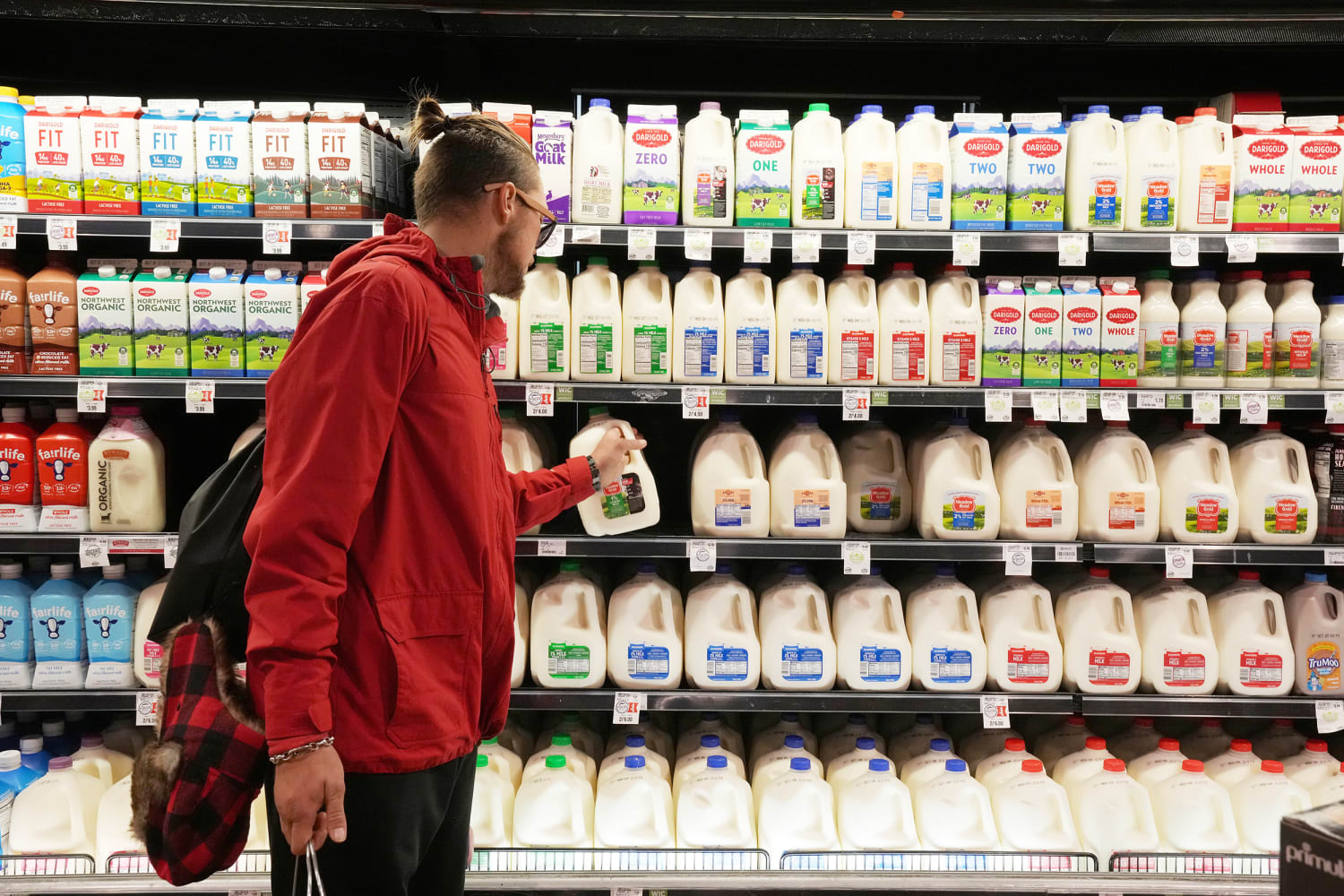The Food and Drug Administration said Tuesday that fragments of the bird flu virus had been detected in some samples of pasteurized milk in the U.S. While the agency maintains that the milk is safe to drink, it notes that it is still waiting on the results of studies to confirm this.
The findings come less than a month after an outbreak of the H5N1 strain of bird flu was found, for the first time, in herds of dairy cows in several states. It has since been detected in herds in eight states. ⠀
The FDA is specifically testing whether pasteurization inactivates bird flu in cow milk. The findings will be available in the “next few days to weeks,” it said. ⠀
Still, the virus remains a cause of concern among health officials, given its particularly high mortality rate of around 50%. Bird flu doesn’t spread easily from person to person, but there’s worry that it could mutate as it spreads among cows to a version that spreads more easily among people. So far, there’s no evidence indicating that has happened, according to the CDC.



To someone drinking milk comes off pretty aggressive.
We’re literally the only species to drink another species milk. And you think the person criticizing your action is aggressive? I get you have a victim complex but seriously, are you a baby cow? Because if that comes off as aggressive, you may need to take a break from the internet for a while.
And we’ve been doing it so long that it affected human evolution, allowing many of us to digest lactose into adulthood.
Then why is 80% of China lactose intolerant? It’s a very North America consumption habit because of North American industry. Milk doesn’t make strong bones, they’ve been lying to you.
I’m talking about the evolution of lactase persistence in humans among civilizations that were heavily dependent on pastoralism thousands, even tens of thousands of years ago. This has nothing to do with North America, because they did not have cows or evolve with cows. Lactase persistence is most pervasive among the people of Northern Europe, West Africa, Southwest Asia, and the Arabian Peninsula.
That’s a fair angle! I would urge you to consider that the existence of lactase in humans should not dictate our eating habits today. Especially with more current, direct examples and studies of dairy’s impact on climate change, health, and chronic illness. Maybe we should look at today’s evidence instead of “we’ve done it for a while now”. We can change our habits, I believe in you!
Occasionally drinking high quality milk is not related to any negative health impacts (among those with lactase persistence) so hard disagree there. It’s a nutritionally dense food with a good mix of fat, protein, sugar, and bioavailabile calcium. There are clearly severe issues with the dairy industry, which is why I’m buying the local stuff that’s almost twice as expensive and where they treat their cows well.
Modern factory farming (of plants) comes with tons of problems too, related to climate change, pesticide and herbice use, fertilizer runoff, habitat destruction, and more. That’s not a reason to stop eating plants.
Interesting take. As if dairy cows don’t then go to slaughter to become meat. You’re feeding the problem while ignoring the end of the production line that you have a hand in upholding. Occasional anything is not the problem. But when milk is in chips, crackers, cereals, baked goods, etc. we’re getting too much of it. There’s a difference between having a single glass of milk and mass overconsumption, since we don’t solely get dairy from occasional milk, cheese, cream, etc. This is where the issues come in. The dairy industry is an issue, dairy itself is an issue, the pervasiveness of dairy in the food system is a problem, and you ignoring your part in climate change and factory farming by supporting the dairy-to-meat pipeline (not to mention disingenuously equating vegetable farming with animal agriculture) is an issue. I won’t be responding again but enjoy your milk! Your hormones, heart, and bones won’t!
You sound like you’re carrying a lot of anger